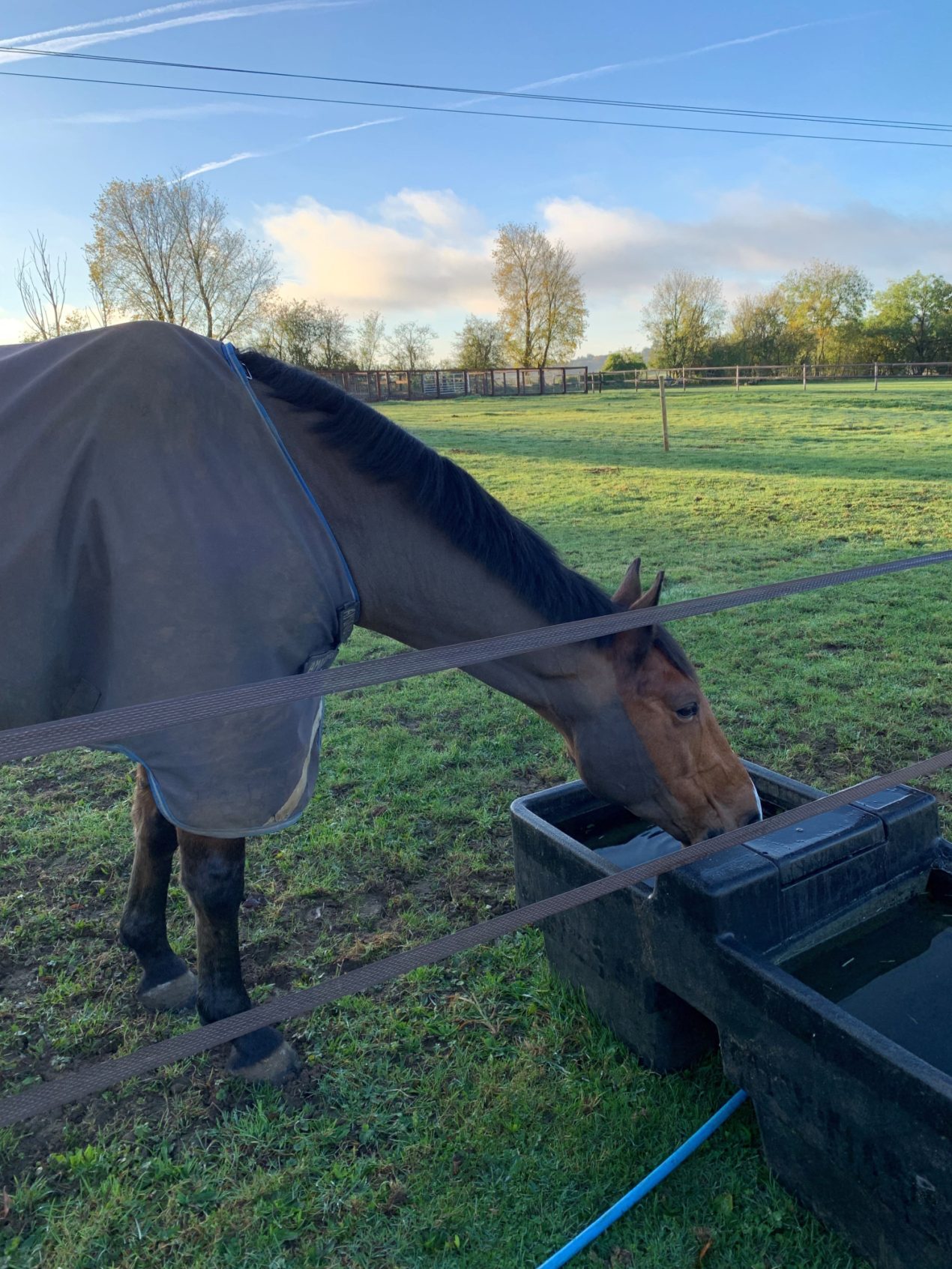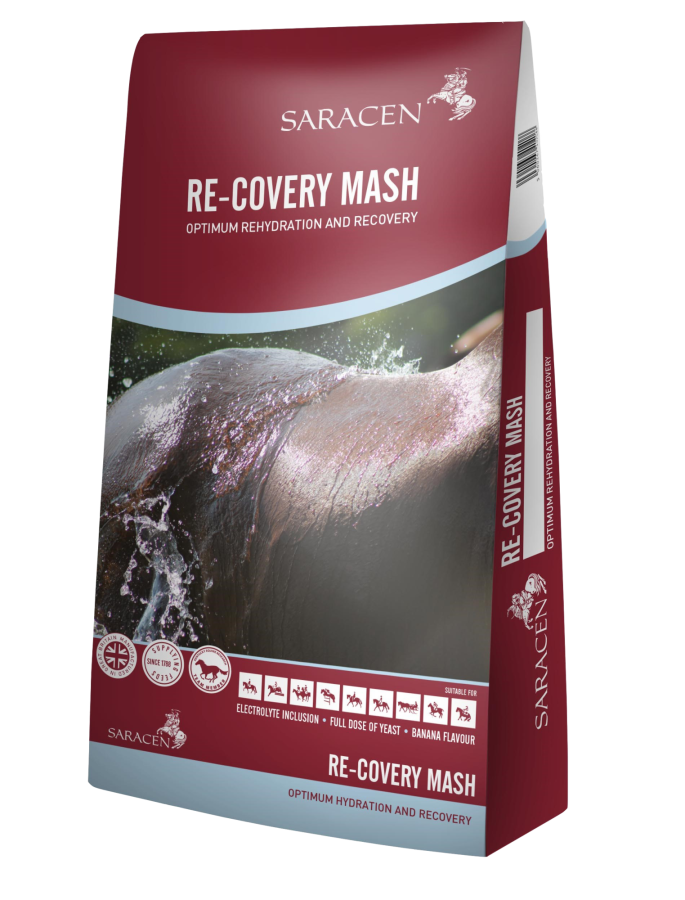Water Intake In Cold Weather

Water intake can decrease as much as 14% in cold weather for some horses. This could be due to several factors such as horses becoming fussier as water temperatures drop and reduced grass intake meaning they receive less water from grass. Higher forage consumption due to horses being in for longer also means extra water is required for fibre digestion. The combination of being less active, eating more dry forage and limited water intake can make impaction colic more of a risk.
Horses consume approx. 75-80% of their total water intake within 1-2 hours post feed consumption. This is linked to large volumes of water moving into the large colon after eating a meal which takes it away from circulation. This causes horses to feel dehydrated and stimulates the thirst response. Offering water at feeding times can help to maintain digestive health through the cold season.
Horses should always have access to fresh, clean water, it is especially important during colder weather to check your horses buckets/water troughs to ensure they are not frozen, and if so, to break and remove any ice to ensure they are still able to access it.
iNCREASING WATER INTAKE IN COLDER TEMPERATURES
- Check your horse’s troughs and buckets. Thick sheets of ice over your horse’s bucket will of course restrict their water access and so it is important to remove them on a daily basis. In addition, ground becoming poached and rutted around troughs can discourage horses from travelling across to have a drink, so make sure your horses water is as accessible as possible.
- Offer warm water where possible. Research has found that horses drink up to 40% more when warm water is offered alone. Adding a warm bucket of water to their trough can be a great way to increase consumption.
- Adding additional water to the feed is a useful way of helping to maintain water intakes. Using soaked fibre products such as Re-Covery Mash or a soaked beet pulp are good ways of tempting fluid intake during cold weather.
- Adding salt on a daily basis to feed will also help to trigger your horses natural thirst response. As salt is one of the only minerals for which horses have an undisputed appetite for, and therefore show a degree of nutritional wisdom regarding its intake, free access to a salt block should also be provided.
- Soaking hay or offering haylage when appropriate can also help. Haylage has a higher moisture content than hay, and soaked or even steamed hay will increase the water content from around 9-20% depending on the type and quality of the forage.

REACH FOR RE-COVERY MASH
Re-Covery Mash was specifically formulated to support hydration in horses who can be fussy with their water intake. Whilst typically associated with feeding after strenuous exercise, Re-Covery Mash could be offered during periods of cold weather to encourage additional fluid intake. Adding 500g-1kg of Re-Covery Mash with a minimum of 2-3 parts water (which can be cold or warm) will provide your horse with both additional fibre and water during cold spells. The mash also contains an additional source of electrolytes to trigger a natural thirst response, helping to support normal fluid intakes.
Quick Feed Finder
Use our quick and easy feed finder as a guide to select the right feed for your horse or pony.
Feed Advice Form
Complete our online form to receive a detailed nutritional plan for your horse or pony from one of our registered nutritionists.











